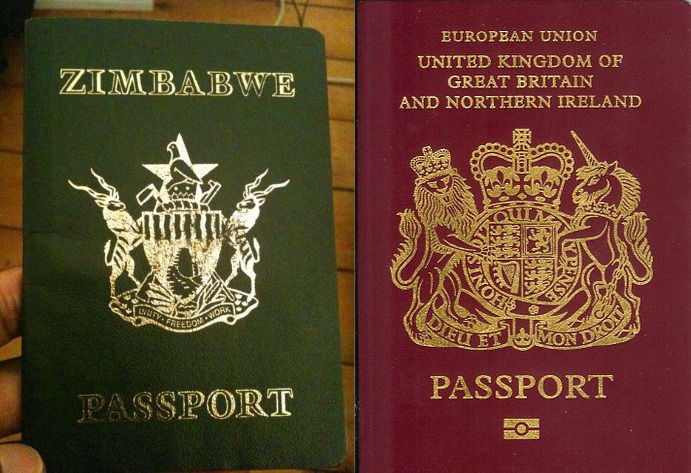Passport, online passport application, Ministry of Home Affairs, Zimbabwe National Digital Registry, e-passport
So it looks like Zimbabwe is finally moving towards e-passports according to Statutory Instrument 273 of 2021,
IT is hereby notified that the Minister has in terms of section 22 of the Citizenship of Zimbabwe Act (Chapter 4:01), made the following regulations:
… The Minister hereby notifies that henceforth the Government will cease the issuance of the current type of passports and in place thereof will be issuing electronically readable passports (e-passports) whose charges are as specified in the Schedule.
The current type of passports, issued before the date of operation of these regulations, will cease to be acceptable internationally by 31st December 2023, and will therefore need to be replaced by e-passports in terms of these regulations.
The Citizenship (Passport Fees) Regulations, 2021, published in Statutory Instrument 201 of 2021, are hereby repealed.
SI 273 of 2021
Old type passport holders have until the end of December 2023 to make the switch and the new e-passport which to be honest is kind of inconvenient if you spent a day plus in a queue for a conventional passport and the government wakes up and decides to make this change.
What is an e-passport and what are its advantages?
An electronic passport or e-passport is a conventional passport with the addition of a readable electronic chip that carries the same information that is printed on the physical document. On top of the conventional information, some e-passports also have on their digital record, biometric data, the bearer’s photograph and in some cases the holder’s iris pattern.
All of these features are meant to protect citizens from identity theft because it is very difficult and expensive to steal the information stored on the document’s encrypted digital record. E-Passports also allow for faster passage through transit at your home border post. I am sure that many of you who have travelled abroad were green with envy at EU citizens skipping through customs while even at the Harare International Airport returning residents have to queue for some time to be cleared. Local Airports will need to be fitted with eGates (Automated Border Control) that will scan the passport and or the document holder’s face.
Only when an automated crossing doesn’t check out will the traditional manual crossing with a border control officer be necessary.
How much are the e-passports going to cost and drawbacks?
According to SI 273 of 2021, an ordinary e-passport will cost US$100.00 and an emergency one will be US$200.00 which is pretty pricey. The only drawback might just be implementation. If the government has dotted its “i” and crossed its “t” as far as the competence of border control staff and robustness of security of both the encryption and the readers at the terminal then we might be alright with this one…-techzim

